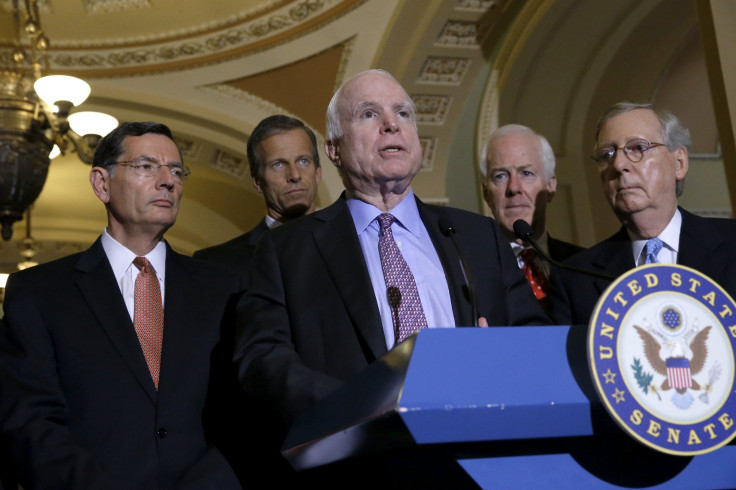US Defense Bill: Senate Expected To Vote On National Defense Authorization Act After Clearing Final Procedural Hurdle

The U.S. Senate is expected to hold a final vote Thursday on an annual defense policy bill after lawmakers cleared the last procedural hurdle before the bill’s passage. The Senate on Wednesday voted 84-14 to end debate on the bill, known as the National Defense Authorization Act (NDAA), with Republicans predicting that a final vote would take place on Thursday.
The legislation has been framed by its supporters as a necessary reform bill for the Department of Defense, despite criticisms from some Democrats over its appropriation of an additional $38 billion to the Pentagon’s war fund. "It is a reform bill, a reform bill that will enable our military to rise to the challenges of a more dangerous world, both today and in the future," Sen. John McCain, R-Ariz., said in comments reported by the Hill.
McCain cautioned the bill’s critics from voting against the bill, arguing that if senators chose not to back the bill over its funding "then they have their priorities upside down. I intend to tell the American people about it because I believe that we're not serving the men and women who are serving this country to the best of their ability," he said.
The procedural move enabling the legislation’s passage comes a day after the Senate overwhelmingly passed an amendment to the bill Tuesday reiterating the U.S.’s ban on torture while making it much more difficult for future presidents to reinstate the kinds of “enhanced interrogation” techniques used in the CIA’s widely discredited torture program.
A Senate investigation into the program released late last year found that the agency lied about the efficacy of its interrogation techniques, which were found to be both brutal and ineffective. McCain has also been one of the leading proponents of the torture amendment, arguing that it provided “greater assurances that never again will the United States follow that dark path of sacrificing our values for our short-term security needs."
© Copyright IBTimes 2025. All rights reserved.





















